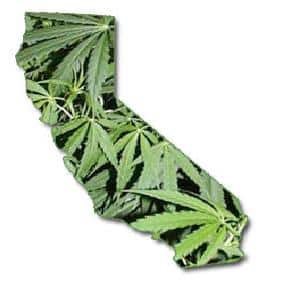 SB 129 Will Protect Medical Marijuana Patients In The Workplace
SB 129 Will Protect Medical Marijuana Patients In The Workplace
The California Senate will vote on a bill to protect medical cannabis patients from employment discrimination this month, and Americans for Safe Access (ASA) is calling on supporters to speak up on behalf of this important bill. Take a minute right now to send an email to your California Senator in support of SB 129. ASA’s Online Action Center makes it easy to locate your Senator and send a message right away.
Senator Mark Leno (D-San Francisco) introduced this ASA-sponsored legislation to prevent discrimination against legal medical cannabis patients in hiring and employment. Without this bill, employers can fire an employee for testing positive for medical cannabis use – even if that use is legal under state law and did not occur at work. That is not fair. ASA hears from patients facing discrimination like this each month. We need to adopt this important bill to protect them from further discrimination.
SB 129 is a reasonable and common-sense bill. It does not allow for medical cannabis use or impairment at work, it exempts certain safety-sensitive employees, and does not prevent employers from firing employees for good cause. This bill simply means that legal patients cannot be fired just for obeying the law. That is surely what the voters intended when the approved Proposition 215, but now we need specific protection for patients’ rights. That is why SB 129 is so important.
An act to amend Section 11362.785 of, and to add Section 11362.787 to, the Health and Safety Code, relating to medical marijuana.
SB 129, as introduced, Leno. Medical marijuana: qualified patients and primary caregivers: employment discrimination. Existing law, the Compassionate Use Act of 1996, provides that a patient or a patient’s primary caregiver who possesses or cultivates marijuana for personal medical purposes of the patient upon the written or oral recommendation or approval of a physician is not subject to conviction for offenses relating to possession and cultivation of marijuana.
Existing law requires the State Department of Public Health to establish and maintain a voluntary program for the issuance of identification cards to patients qualified to use marijuana for their personal medical purposes, and to their primary caregivers, if any.
Existing law states, however, that these provisions do not require any accommodation of any medical use of marijuana on the property or premises of any place of employment or during the hours of employment. This bill, notwithstanding existing law, would declare it unlawful for an employer to discriminate against a person in hiring, termination, or any term or condition of employment or otherwise penalize a person, if the discrimination is based upon the person’s
status as a qualified patient or a positive drug test for marijuana, except as specified. The bill would authorize a person who has suffered discrimination in violation of the bill to institute and prosecute a civil action for damages, injunctive relief, reasonable attorney’s fees and costs, any other appropriate equitable relief, as specified, and any other relief the court may deem proper. The bill would not prohibit an employer from terminating the employment of, or taking other corrective action against, an employee who is impaired on the property or premises of the place of employment, or during the hours of employment, because of the medical use of marijuana.
Vote: majority. Appropriation: no. Fiscal committee: no.
State-mandated local program: no.
THE PEOPLE OF THE STATE OF CALIFORNIA DO ENACT AS FOLLOWS:
SECTION 1. Section 11362.785 of the Health and Safety Code is
amended to read:
11362.785. (a) Nothing in this article shall require any
accommodation of any medical use of marijuana on the property or
premises of any place of employment or during the hours of
employment employment, except as provided in Section
11362.787, or on the property or premises of any jail,
correctional facility, or other type of penal institution in which
prisoners reside or persons under arrest are detained.
(b) Notwithstanding subdivision (a), a person shall not be
prohibited or prevented from obtaining and submitting the written
information and documentation necessary to apply for an
identification card on the basis that the person is incarcerated in a
jail, correctional facility, or other penal institution in which
prisoners reside or persons under arrest are detained.
(c) Nothing in this
This article shall no t
prohibit a jail, correctional facility, or other penal institution in
which prisoners reside or persons under arrest are detained, from
permitting a prisoner or a person under arrest who has an
identification card, to use marijuana for medical purposes under
circumstances that will not endanger the health or safety of other
prisoners or the security of the facility.
(d) Nothing in this This article
shall not require a governmental, private, or any other
health insurance provider or health care service plan to be liable
for any claim for reimbursement for the medical use of marijuana.
SEC. 2. Section 11362.787 is added to the Health and Safety Code,
to read:
11362.787. (a) Notwithstanding subdivision (a) of Section
11362.785, and except as provided in subdivision (c), it is unlawful
for an employer to discriminate against a person in hiring,
termination, or any term or condition of employment or otherwise
penalize a person, if the discrimination is based upon either of the
following:
(1) The person’s status as a qualified patient.
(2) The person’s positive drug test for marijuana, provided the
person is a qualified patient and the medical use of marijuana, as
defined in Section 11362.7, does not occur on the property or
premises of the place of employment or during the hours of
employment, as required by Section 11362.785.
(b) A person who has suffered discrimination in violation of
subdivision (a) may institute and prosecute in his or her own name
and on his or her own behalf a civil action for damages, injunctive
relief, reasonable attorney’s fees and costs, any other appropriate
equitable relief to protect the peaceable exercise of the right or
rights secured, and any other relief the court may deem proper.
(c) (1) Paragraph (2) of subdivision (a) shall not apply when an
employer employs a person in a safety-sensitive position.
(2) For purposes of this section, a safety-sensitive position
means a position in which medical cannabis-affected performance could
clearly endanger the health and safety of others. A safety-sensitive
position shall have all of the following general characteristics:
(A) Its duties involve a greater than normal level of trust,
responsibility for, or impact on the health and safety of others.
(B) Errors in judgment, inattentiveness, or diminished
coordination, dexterity, or composure while performing its duties
could clearly result in mistakes that would endanger the health and
safety of others.
(C) An employee in a position of this nature works independently,
or performs tasks of a nature that it cannot safely be assumed that
mistakes like those described in subparagraph (B) could be prevented
by a supervisor or another employee.
(3) “Safety-sensitive position” also includes a position that
involves the performance of a “safety-sensitive function,” as
described in Section 655.4 of Title 49 of the Code of Federal
Regulations, and a position in law enforcement, as defined in
subdivision (d) of Section 13951 of the Government Code.
(d) Nothing in this This section
shall not prohibit an employer from terminating the
employment of, or taking other corrective action against, an employee
who is impaired on the property or premises of the place of
employment or during the hours of employment, because of the medical
use of marijuana.









